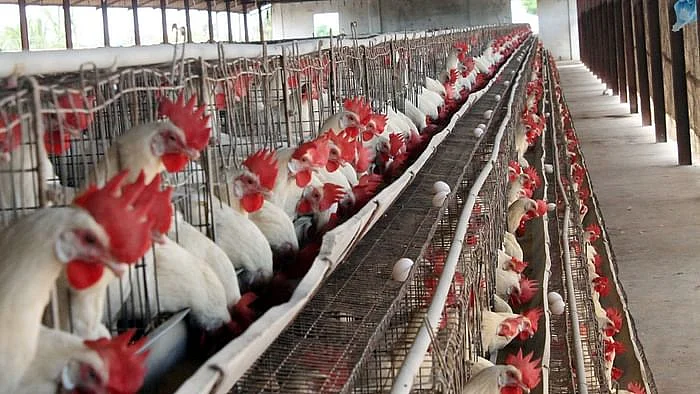Bird Flu Outbreak: Is It Safe to Eat Chicken? How to Handle Raw Meat?
Amid bird flu scare, here are some tips to handle raw chicken before you cook it.

advertisement
Video Editor: Deepthi Ramdas
Camera: Athar Rather
Producer: Mythreyee Ramesh
The H5N1 influenza – commonly referred to as the bird flu – is now being 'closely monitored' scientists and the World Health Organisation (WHO), after its spread to mammals.
At least 58 million poultry birds have died due to the virus over the past few weeks, along with hundreds of wild sea lions in South America, a farm of minks in Europe.
Can bird flu spread through meat consumption? How should you handle raw chicken?
The Quint breaks down these questions for you.
Can avian influenza spread from birds to human beings?
To put it straight, the flu primarily affects birds. However, those human beings who come in direct contact with sick birds may get infected. There is no need to panic as human to human spread is not too prominent with the current strain.
Does this mean I should not eat eggs, chicken or duck?
Till date, no evidence indicates that anyone has become infected following the consumption of properly cooked poultry or poultry products, even when these foods were contaminated with the avian influenza virus, the Centre has said in its revised Action Plan for Prevention, Control & Containment of Avian Influenza.
The World Health Organisation (WHO) has maintained that it is ‘safe’ to eat chicken and eggs as long as it is ‘properly prepared and cooked’.
“As a standard precaution, WHO recommends that poultry, poultry products, and wild game birds should always be prepared following good hygienic practices and that poultry meat should be properly cooked,” the body adds.
Does heat kill the virus causing bird flu?
Yes, most definitely.
Dr Praveen Gupta, Director and Head Neurology, Fortis Memorial Research Institute, Gurgaon, told FIT, “Yes, cooking at 70ºC keeps food safe and ensures that the virus is killed.”
“It must be emphasised that poultry meat cooked at more than 70ºC temperature for 30 minutes inactivates the virus, and it is absolutely safe to consume properly cooked poultry meat and eggs,” the Centre too has noted.
Is there any specific precaution I should take if I buy meat directly from a butcher stop?
According to Nishanth Chandran, Founder-CEO of online meat shop TenderCuts, the following precautions should be taken while buying meat directly from a butcher shop:
- Take your own stainless steel vessel and collect the meat in the same
- Avoid using a plastic bag to pack the meat at the shop
- When you reach home, clean the chicken immediately
However, one should avoid going to markets that sell poultry, experts tell.
“One should avoid going to open markets that sell poultry as they are the focal point of the spread,” Richa Sareen, consultant (pulmonology), at Fortis Vasant Kunj in New Delhi, told IANS.
She also suggested avoiding any visit to live animal markets or poultry farms for now. “If need be, wear a mask and gloves all the time. Also, do not go near or touch bird droppings or sick and dead birds.”
What precautions should I take while handling raw meat?
Chandran advised people to undertake the following measures before cooking raw poultry.
- Wash/sanitise your hands with warm water and soap
- Do not wash the meat under running tap water
- The chances of contaminating the meat is more when washed with unclean water
- Use RO water to clean the meat
- If you don't have access to RO water, boil water and let it cool down and then wash the meat
- You can then marinate or cook the meat
Dr Upali Nanda, Head, Preventive Health & Consultant-Medicine, Medeor Hospital Qutab Institutional Area (Delhi), too, advised that one should wash their hands with warm water and use different utensils for cooking meat.
How long can I store meat after I clean it further?
While it is advisable to cook the meat immediately but you may store it for 24 hours after cleaning the meat.
What precautions should be taken while cooking?
Cook meat/eggs at or above 70ºC to make sure that the virus is killed
Consumers need to be sure that all parts of the poultry are fully cooked – that there is no “pink” parts and no runny yolks in eggs
In areas experiencing outbreaks in poultry, raw eggs should not be used in foods that will not be further heat-treated
If chicken is going to be boiled for a salad dressing, make sure that the chicken is cooked completely and does not remain raw
(With inputs from FIT. This was first published in 2021. It has been republished from The Quint's archives over bird flu outbreak.)
(At The Quint, we question everything. Play an active role in shaping our journalism by becoming a member today.)